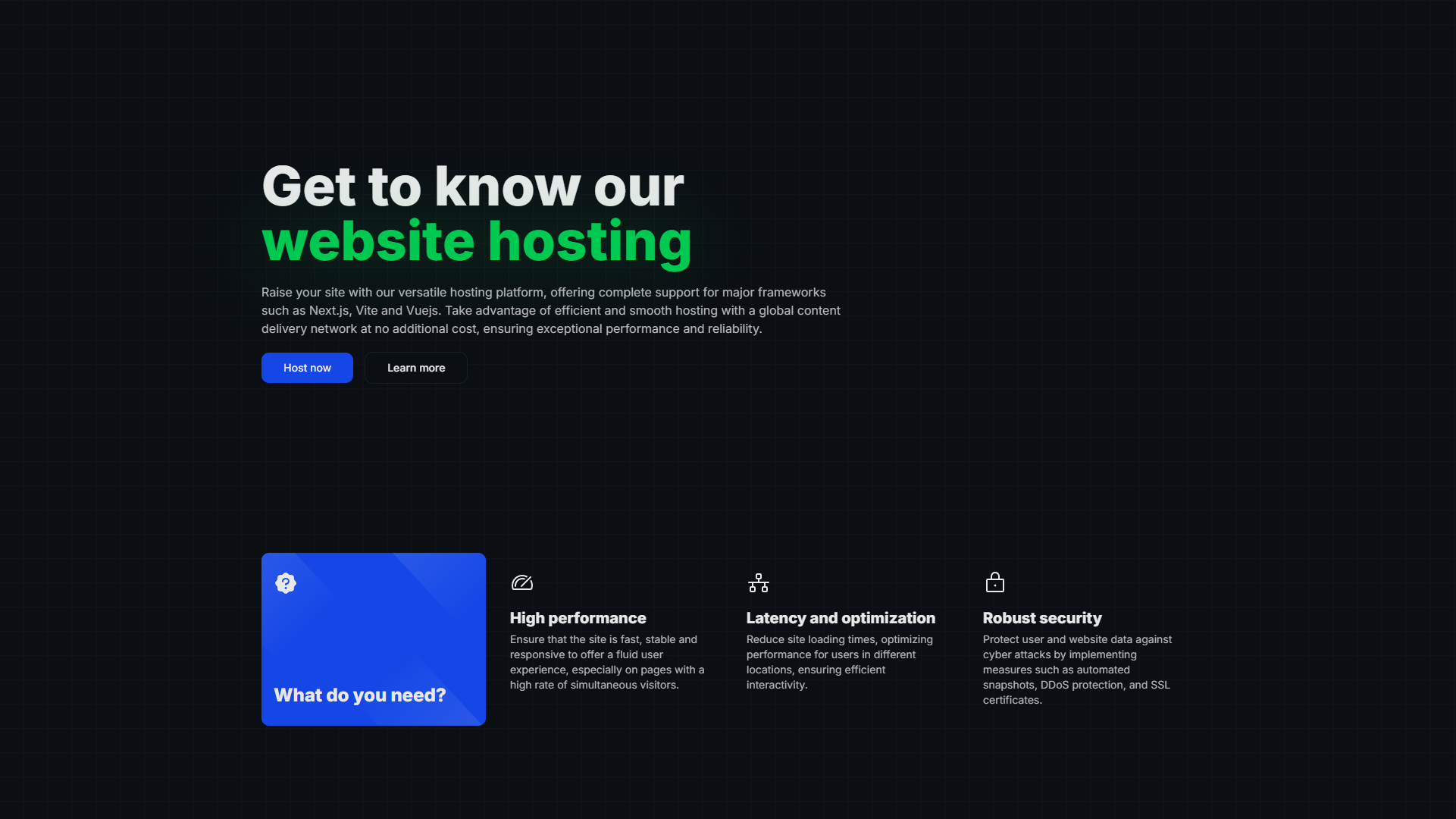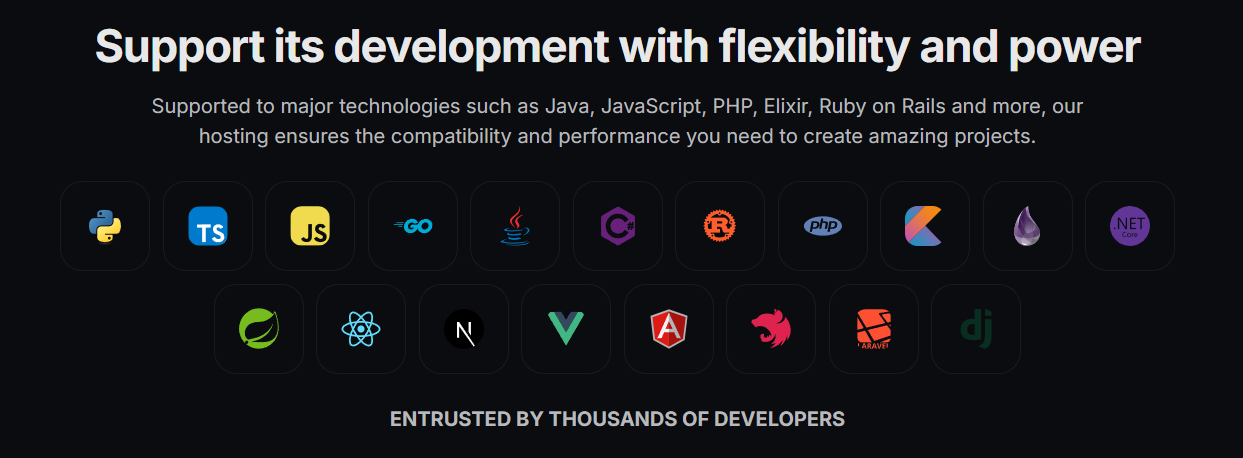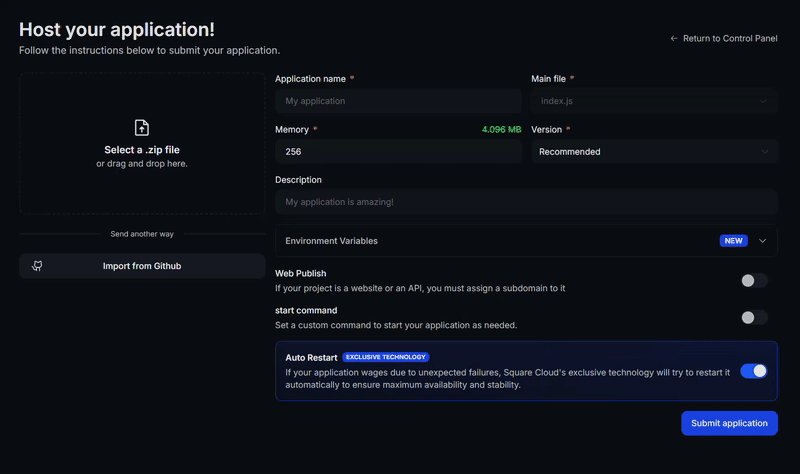
Why choose Square Cloud?
Our platform is built by a specialized cloud infrastructure team for developers, combining cutting-edge hardware with tools that streamline your workflow and ensure application stability.Enterprise-Level Protection
Protect your site with the most advanced security technology: Cloudflare Premium WAF integrated + Square Shield Enterprise included for free. Enterprise-grade security at no extra cost.
Enterprise-Level Performance
Next-gen hardware with Samsung enterprise NVMe SSDs and 10Gbps networks delivering exceptional performance and ultra-low latency. Includes free global CDN to ensure your site loads instantly.
Ultra-Fast DNS
Enterprise DNS with instant global propagation. Automatically configure your domain with 40% faster resolution than competitors. Your visitors access your site instantly, anywhere in the world.
Smart Snapshots
Proprietary instant restore point technology with 99.9% reliability tested by over 50,000 developers. Recover your data with one click, no data loss, and zero downtime—included for free.
Supported environments
We offer broad compatibility so you can host your site using your preferred technology.Frameworks
We provide native support for the most popular frameworks on the market, ensuring compatibility and performance.
Beyond the frameworks shown above, our platform offers universal support for virtually any framework or library. Our flexible infrastructure automatically adapts to your project’s specific needs, ensuring compatibility with your chosen technology.
Languages
Developer ecosystem
Optimize your workflow with our development tools:- Square Cloud CLI: Manage your applications directly from the terminal.
- VSCode Extension: Integrate hosting management into your editor.
- GitHub Webhooks: Configure automatic deployments based on events.
- GitHub Actions: Automate deployments via intelligent workflows.
- SDKs: Interact with our API programmatically.
Custom domain
Set up your professional domain in minutes and join the thousands of companies that trust Square Cloud for their mission-critical projects. Simplified process with automatic SSL and instant global propagation.Custom Domain
Thinking about a custom domain? Square Cloud makes it easy.
How to host my website?
Configuration file
The first step to host your site on Square Cloud is to create a detailed configuration file. This file is not just a simple text document but a comprehensive guide that defines your application’s settings on Square Cloud. It serves as an architectural blueprint for your project on the platform.Once you have your plan, you need to create this file by detailing each setting and filling it out correctly. Details on how to create this file are available here with a step-by-step guide.
Remember to include the following fields in your configuration file:
- SUBDOMAIN: The subdomain for your site.
Example:SUBDOMAIN=test(test.squareweb.app) - MEMORY: The amount of RAM, with a minimum of 512MB.
Creating the ZIP file
With the configuration file ready, the next step is to prepare your application for upload. This involves placing the application files and the Square Cloud configuration file into a .zip archive.However, not all files need to be included in this .zip. Files like
node_modules, package-lock.json, pyproject.toml, poetry.lock, and __pycache__ are not required, as they can be generated automatically on the server side. A list of files that don’t need to be uploaded is available here, helping ensure that only the necessary files are in the .zip, making the upload process faster and smoother.Dependencies file
Another crucial aspect is including the dependencies file in the .zip. This file tells the Square Cloud platform which dependencies to install for your project. For a Node.js project, this file is
package.json, and for a Python project, it’s requirements.txt.These files list the libraries and packages required for your application to function correctly. Keeping these files up to date is crucial to avoid installation errors. Additionally, it’s important to note that native dependencies, such as node-fetch in Node.js and random in Python, should not be included in these files, as they are built-in libraries.Uploading your site
After following all the steps and configuring your project for Square Cloud, it’s time to upload your site. Go to the upload page on the Square Cloud website and upload your .zip file here.The process is straightforward: select your .zip file and click the upload button. Square Cloud will begin the deployment process, installing the necessary dependencies and setting up the environment based on your configuration file.


